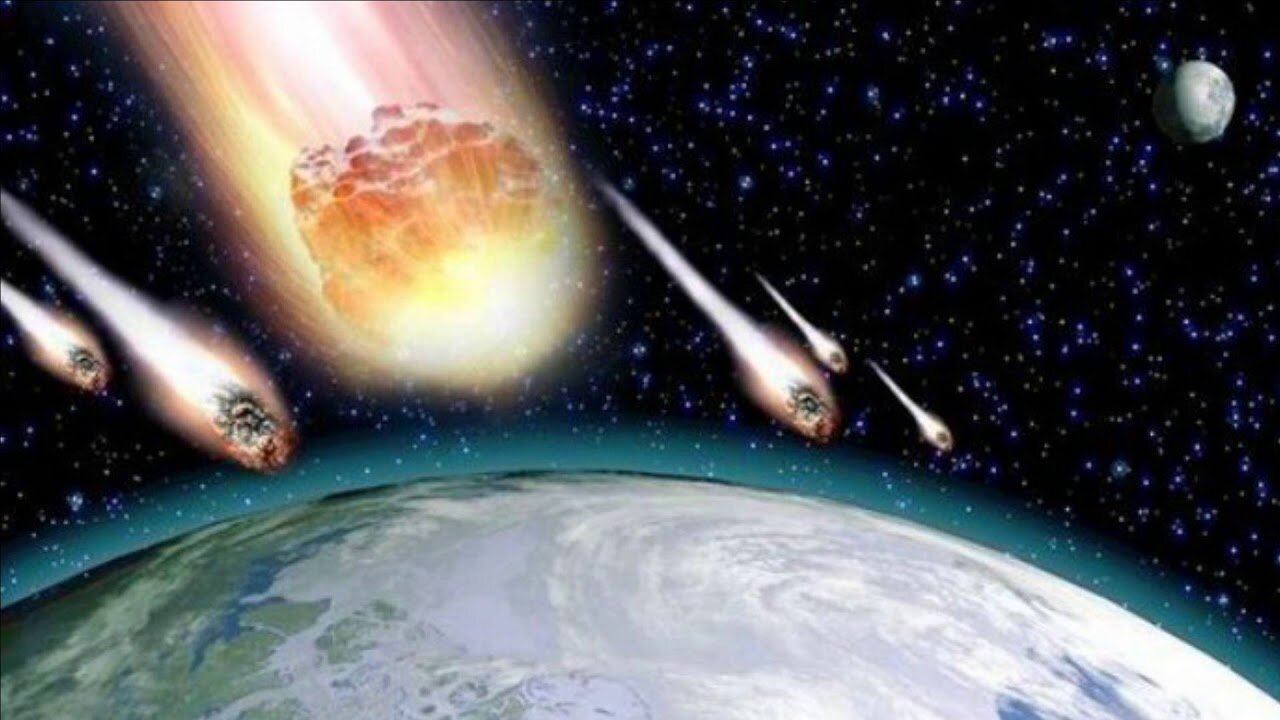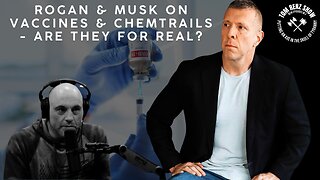Premium Only Content

Randall Carlson Younger Dryas Impact Lecture
Over the past 150 years, one need not examine the history of science too closely in order to notice that whatever the established "scientific paradigm" might be at any given time about ANY scientific topic, new hypotheses that arise that field of study are always rejected by those who are sitting at the top of the scientific pyramid.
...
Just look at how long it took mainstream science to accept the fact that a cosmic impact was responsible for the extinction of the dinosaurs 65 million years ago, and that ALL life was nearly wiped from the face of the Earth at that time. Scientists spent the fist 70 years of the 20th century trying to squelch any information that would lead mankind to believe that catastrophes such as the KP event, or like the flood stories related to us in the Bible and in hundreds of accounts handed down to us by our ancestors, ever happened in reality.
...
Of course, we now know this is not true. Not just one, but several catastrophic, worldwide disasters have occurred on our planet. One only needs to look at all of the sunken cities and archeological ruins that lie hundreds of feet beneath the oceans of the world to see evidence of that. With the exception of a few cataclysmic volcanic eruptions such as the Toba and Krakatoa events, almost ALL of the great catastrophes that have ever occurred were caused by cosmic impacts such as the Younger Dryas cosmic impact event, which occurred on 12,800 years ago that set 10% of the world on fire, melted the North American Ice Cap, raised sea levels by 400 feet, and wiped out all of the people and Megafauna species that were then living on the North American continent, or by periodic solar outburst from the Sun.
...
You might think that this was a long time ago, and that such things are a rare occurrence--a thing of the past, but you'd be sadly mistaken. New, cosmic impact sites are being discovered all the time, especially in our oceans, including several that have occurred within the Holocene, the geologic period of time in which we now live. The crux of the matter is that the greatest existential threat facing our planet, and therefore mankind, is NOT [manmade] carbon dioxide (the "Gas of Life")--plant food that we need more of, not less--as the Leftist academic establishment would have you believe, it's comets, asteroids, and solar outbursts, which strike our little blue marble with alarming regularity.
...
SEMPER LIBERTAS
https://FreedomMovement.info
-
 4:57
4:57
FreedomMovement
1 month agoThe Kalergi Plan: A Blueprint for Genocide
579 -
 LIVE
LIVE
Nerdrotic
3 hours ago $0.27 earnedThe M-She-U is OVER and Marvel DUMPS Women - Nerdrotic Nooner 476
1,628 watching -
 LIVE
LIVE
Ben Shapiro
1 hour agoEp. 2167 - MORE TRUMP WINNING: NPR CEO IMPLODES, MS-13 Head ARRESTED
2,578 watching -
 LIVE
LIVE
The Tom Renz Show
1 hour agoRogan & Musk on Vaccines & Chemtrails - Are They For Real?
306 watching -
 1:01:08
1:01:08
Timcast
2 hours agoMasked ICE "DISAPPEAR" Anti Israel Protester Migrant, Democrats FURIOUS Over Ice Deportations
140K147 -
 2:05:00
2:05:00
Steven Crowder
4 hours agoWhat Trump’s Massive Auto Tariffs Are Really About | Guest: Bill Richmond
351K294 -
 2:25:42
2:25:42
Right Side Broadcasting Network
4 hours agoLIVE REPLAY: Congress Holds Hearing: “INL Should Fight Crime, Not Fight Conservatives” - 3/27/25
35.8K14 -
 LIVE
LIVE
IrishBreakdown
2 hours agoNotre Dame Offensive Line Remains A Question Mark Through Spring
708 watching -
 LIVE
LIVE
TheAlecLaceShow
3 hours agoGuests: House Majority Leader Steve Scalise & Rep. Michael Guest | Signalgate | The Alec Lace Show
135 watching -
 1:47:22
1:47:22
Tate Speech by Andrew Tate
6 hours agoEMERGENCY MEETING EPISODE 107 - YOU’RE A NOBODY!
118K53